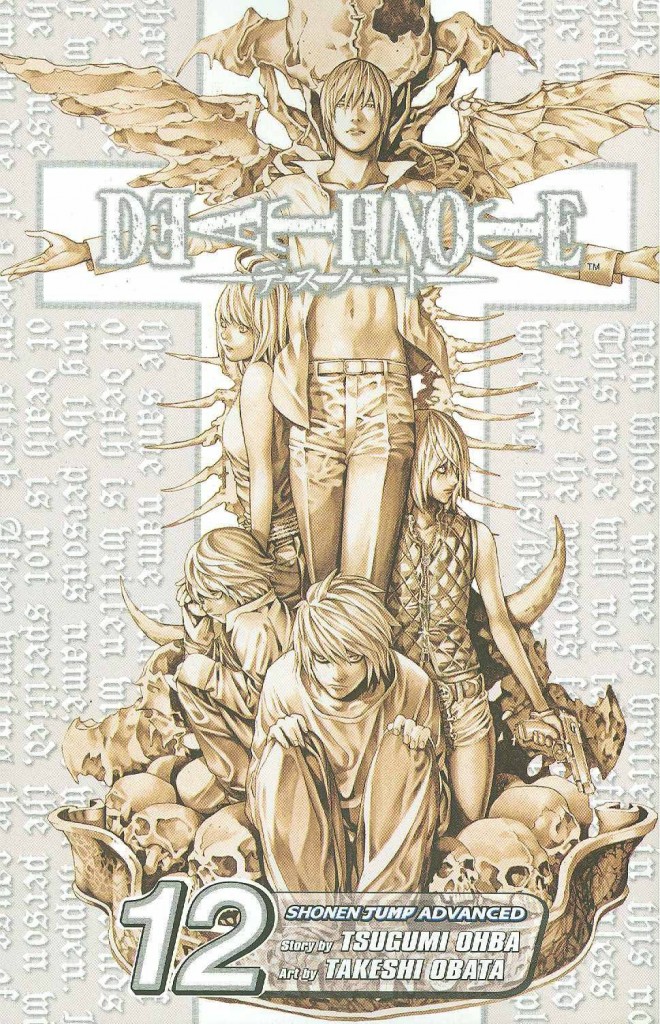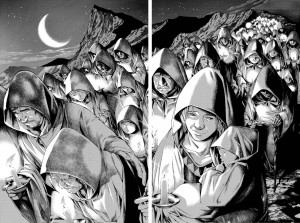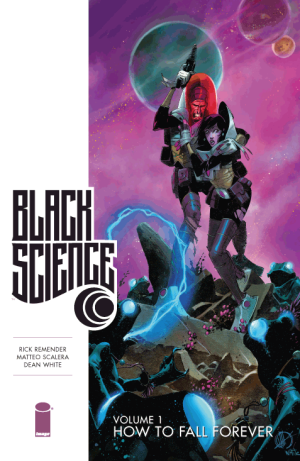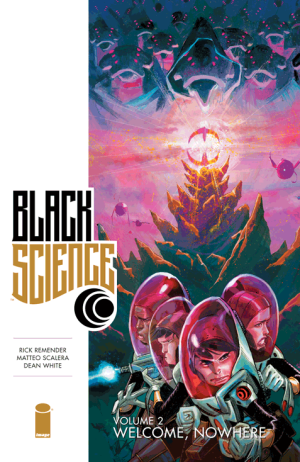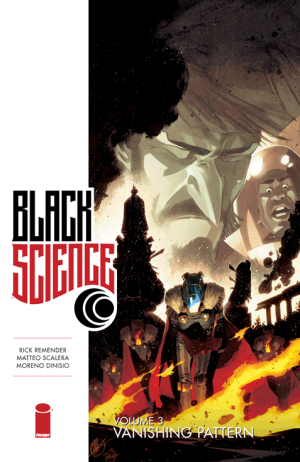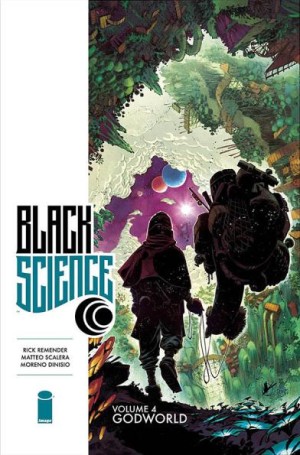Review by Karl Verhoven
So we arrive at the conclusion of Death Note, and it follows, at least by the high standards Tsugumi Ohba has set, a couple of sub-par books. Does he pull the series back from the brink with a stunning finale?
Book 11 concluded with Near about to meet Light Yagami under strict conditions to confirm suspicions that as well as heading the Japanese task force investigating the killer known as Kira, Yagami is actually Kira. Yagami was confident he’d out-manoeuvered Near, but before their meeting could occur Kira’s mouthpiece the TV presenter Kiyomi Takada was abducted.
Much of this conclusion is a form of stand off. As illustrated by Takeshi Obata it’s very cinematic and you can almost hear the Sergio Leone soundtrack whistling away in the background. Unfortunately, it’s also too melodramatic as staged. We have plot, counter-plot, contradiction, anticipation of the first plot, then of the a second, and even accepting we’re dealing with a pair of geniuses it fails to sustain credibility. Ohba, for once, fails to pull the wool over our eyes in credible fashion with a ten page explanation. When the denouement has occurred, and everyone’s had their say, just one minute variation on the part of any one of several people would have irrevocably changed the way events played out.
However, it’s at that point, still only just past the halfway mark that Ohba pulls everything together again. He’s seeded moral issues throughout the series. Zealotry is the final topic of discussion, and it’s excellent. Before the final act is played out, Near, every bit as distanced as Yagami, states that “anybody who claims to be God and kills people from left to right is definitely evil by my standards”, yet this is knowing. Elsewhere Obata delivers his version of God, and it’s an etched Gustave Doré version reflecting Old Testament justice. To discuss the finale further would require revelations, but if there were any doubts as to where the author’s sympathies lie, they’ll be dispelled by a powerful shredding of facile justifications. It’s very impressive. Let it also be said that Death-God Ryuk, subdued for quite some while, comes into his own again, chillingly drawn by Obata.
While the last couple have books have dipped below the exceptionally high standards set by the early material, in its entirety Death Note is remarkable. It’s rarely predictable and there’s surely never been another series sustained so long on analytical deduction and second guessing, with every thought considered and explained. This makes for dry reading in places, but without that universal level of consistency the quality wouldn’t be as high overall. It’s also noteworthy that once past the opening books, unless required for dramatic purposes, almost all the murders occur off panel because they’re a means to an end prompting discussion and only rarely a shock.
Ohba’s taken an admirably unsentimental view of his cast. In this way Yagami reflects him. They serve a purpose, and once that’s concluded he’ll callously dispose of them. The one consistent weakness is the lack of a strong female character. Nearly every woman in the series is either easily manipulated, or sidelined very rapidly after a brief moment in the spotlight. Ohba considered all other aspects of the series so carefully that this is an inexplicable anomaly.
The material setting up the ending here drags a little, and stretches belief, but when the finale plays out, it’s every bit as dramatic, terrifying and surprising as the best moments of the series.
This is also available combined with Book 11 as Death Note Black Edition VI.
